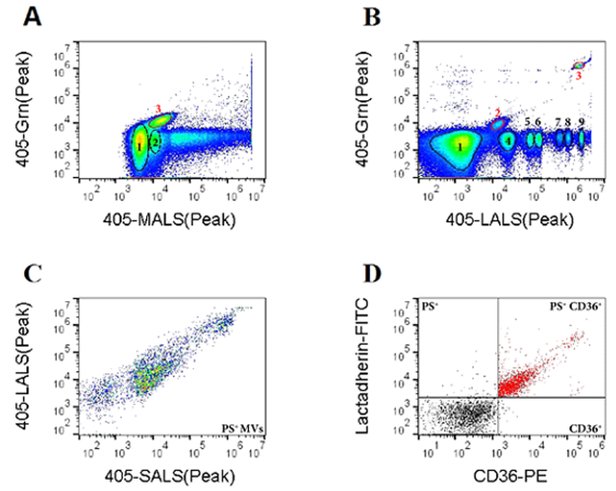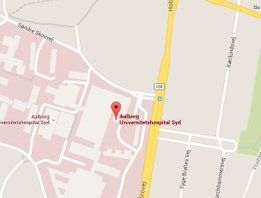DEPARTMENT OF CLINICAL BIOCHEMISTRY
Aalborg University Hospital
Metabolic Diseases
Technical Platforms
Apogee A60 Micro-PLUS
The Research Group for Metabolic Diseases recently acquired an Apogee A60 Micro-PLUS flow cytometer and is currently validating its performance. The A60 Micro-PLUS has unprecedented sensitivity and resolution, making it ideal for detecting and characterising small biological particles such as microvesicles and exosomes. This is made possible by several technological advances including:
• 3 powerful, spatially separated lasers (405nm, 488nm, 638nm);
• 12 highly sensitive detectors distributed between the three lasers;
• 405nm laser for light scatter to improve detection of small particles;
• A novel light scatter detector module (medium-angle light scatter; MALS), which is sensitive to light scatter from small particles;
• Ability to analyse samples at low flow rates down to 0.75µL/min.
In addition, we use various immunological methods for quantification and characterization of proteins (ELISA, Western Blots, Immunopurification).
Proteins are also studied by various chromatographic methods as well as by use of a number of detergents (membrane proteins).
We intend to study cell cultures under various conditions mimicking in vivo pathophysiological processes.
Figure 1: Performance test of Apogee A60 Micro-PLUS demonstrated that it is capable of identifying 100nm silica beads with similar refractive properties to biological samples (A; gate 2) and clearly separate distinct size populations of silica beads ranging in size from 180nm to 880nm (B, gates 4-9). In addition, analysing a platelet-free plasma sample labelled with lactadherin-FITC and PE-conjugated anti-human CD36 antibody, microvesicles could also be detected (C) and their expression of CD36 accurately assessed (D).
Recent publications:
Location:
Hobrovej and Sdr. Skovvej,
DK-9000 Aalborg


